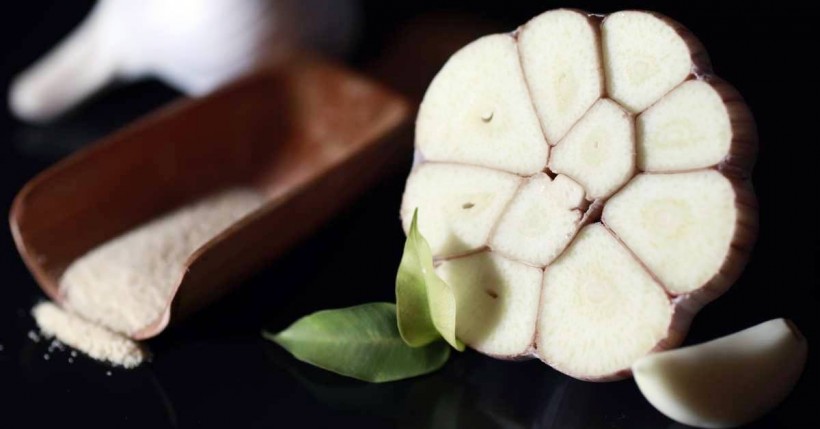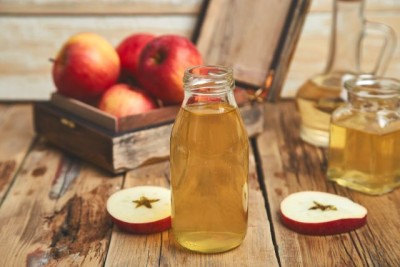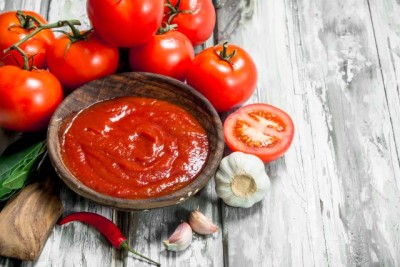10 Most Powerful Natural Antibiotics For Treating Infections
Warning: Undefined variable $post in /home/dietofli/public_html/wp-content/plugins/code-snippets/php/snippet-ops.php(582) : eval()'d code on line 3
Warning: Attempt to read property "ID" on null in /home/dietofli/public_html/wp-content/plugins/code-snippets/php/snippet-ops.php(582) : eval()'d code on line 3
The estimated reading time is 13 minutes
Warning: Undefined variable $post in /home/dietofli/public_html/wp-content/plugins/oxygen/component-framework/components/classes/code-block.class.php(115) : eval()'d code on line 3
Warning: Attempt to read property "ID" on null in /home/dietofli/public_html/wp-content/plugins/oxygen/component-framework/components/classes/code-block.class.php(115) : eval()'d code on line 3

- 10 Most Powerful Natural Antibiotics
- What Is the Strongest Natural Antibiotic?
- What Are The Most Effective Natural Antibiotics For Tooth Infection?
- What Are The Most Effective Natural Antibiotics for Sinus Infection?
- How Can You Make A Natural Antibiotic At Home?
- How To Use the Antibiotic
- Risks And Side Effects Of Natural Antibiotics
Antibiotics are drugs that are used to destroy or hinder the growth of bacteria. When we have a cold, a cough or an infection, most of us tend to go to the doctor’s office to ask for a prescription antibiotic. But, while antibiotics can treat bacterial infections, they can’t treat viral ones, such as coughs, colds, and flu. Unfortunately, most people forget about this fact and instinctively reach for the first antibiotic they can find in their medicine cabinet when they’re faced with a health problem.
Not only can overusing prescription antibiotics cause various side effects, it can also cause bacteria to be resistant to some medications. According to the National Health Service (NHS), antibiotics cause side effects which affect the digestive system in approximately one in ten people. Moreover, this type of medication causes allergic reaction in about one in fifteen people (1). Additionally, while antibiotics destroy bad bacteria, they destroy heathy bacteria as well.
This is the reason why more and more people are beginning to replace prescription antibiotics with natural ones to treat infections. Before penicillin was discovered in 1940, people relied on various herbs and foods to treat bacterial infections.
The term “natural antibiotics” refers to herbs, plants, essential oils, and supplements which have antimicrobial activity. For instance, some vegetable and fruit extracts can prevent bacteria from growing in food. And the antibacterial compounds present in cranberry extract make it a powerful natural remedy for infections of the urinary tract.
Additionally, a lot of herbs have antimicrobial properties too. For example, one study which examined the antimicrobial properties of 58 Chinese medicinal herbs found that 15 extracts displayed anti-fungal properties and 23 extracts had anti-bacterial properties (2).
Moreover, one 2014 study has found that a herbal therapy is as effective as the antibiotic rifaximin for treating the condition small intestinal bacterial overgrowth (3).
However, it’s worth mentioning that you should never use natural antibiotics without consulting your doctor first. Leaving bacterial infections untreated can cause your symptoms to become worse and make it harder for you to treat your infection.
So, in this article, we’re going to discuss what the most effective natural antibiotics are, how you can make a natural antibiotic on your own, and what side effects they may cause. So, without further ado, let’s dive right into it.
10 Most Powerful Natural Antibiotics
-
Ginger
Ginger has been recognized as an effective natural antibiotic in several studies. One such study was published in 2017 and it mentioned that ginger extracts and ginger oils showed antibacterial and antimicrobial effects against various types of bacteria (4).
In addition, ginger is commonly used as a natural remedy for treating colds, sore throat, and flu. Moreover, scientists are investigating the potential of ginger to reduce blood sugar levels and treat nausea.
-
Thyme Essential Oil
Thyme essential oil is commonly found in many household cleaning products due to its potential to destroy bacteria, even those that are antibiotic-resistant.
One 2011 study examined the antibacterial effects of oils against bacterial strains of Enterococcus, Pseudomonas genera, Staphylococcus, and E. coli. The results showed that thyme oil was effective against strains of these bacteria that were resistant to antibiotics (5).
You should never take thyme essential oil orally as it can damage the lining of your gastrointestinal tract and lead to liver toxicity. This oil should only be used topically. You can apply thyme oil to affected areas of your skin, but before you do, make sure you dilute it with equal amounts of carrier oils, such as olive oil, sweet almond oil, or coconut oil, in order to prevent irritation and inflammation.
People who have hypertension or hyperthyroidism should avoid applying thyme oil to their skin.
-
Garlic
Garlic has been known for its potential to treat and prevent various diseases in different cultures around the world for centuries.
One 2011 study has suggested that garlic is effective against various bacteria, including Escherichia coli, Staphylococcus aureus, Salmonella, Pseudomonas, Helicobacter, and others.
The antibacterial activity of garlic is due to its compound allicin.
Additionally, garlic has been widely recognized for its potential to prevent and treat cardiovascular diseases and it’s been shown to have anticancer properties as well (6).
By consuming a couple of cloves of garlic daily, you can successfully ward off different viruses, bacteria, and infections. To maximize its antibacterial effects, it’s best to eat garlic raw, crushed, or chopped. You can add it to salads, dressings, soups, or drinks.
Additionally, you can make garlic oil by yourself by soaking several cloves of garlic in olive oil, and of course, you can always buy garlic extract at health food stores.
However, if you are taking anticoagulants, talk to your doctor prior to turning to garlic as an antibiotic. If this vegetable is consumed in large quantities, it can intensify the effects of these medications.
-
Honey
Due to its antimicrobial properties, people used honey even in ancient times to treat wounds, protect the skin, and prevent or slow down infection.
One study says that the healing effect of honey is a result of its antibacterial properties, its viscosity, and its ability to keep wounds moist. And the antimicrobial properties of honey are due to the hydrogen peroxide present in it. In addition, Manuka honey, also known as non-peroxide honey, shows considerable antibacterial activity too, and being high in sugar, it can prevent microbial growth.
The study also reports that Tualang honey can be used as an alternative remedy for treating wound infection. In addition, this type of honey can prevent certain bacteria, such as Escherichia coli, S. flexneri, and S. typhi, at low concentrations.
The study also suggests that Revamil honey can be used to treat topical infections which are caused by bacteria that are sensitive or resistant to antibiotics. (7)
To treat wounds, you can apply honey directly to the affected area. Not only will the honey destroy the bacteria, it will also help the wound to heal faster.
To treat internal infections, take honey orally. Just swallow one tablespoon of honey or add it to a warm cup of tea.
An important thing we’d like to mention here is that infants younger than one year old shouldn’t be given honey as they may be allergic to it.
-
Onions
The health benefits of onions and garlic are similar. Onions have been shown to effectively treat wounds containing bacteria, such as staphylococci and streptococci. Moreover, aqueous filtrates from onions were found to hinder growth of three bacteria: Brucella abortus, Escherichia coli, and Staphylococcus aureus. (8)
As is the case with garlic, to maximize the antibacterial effects of onions, it’s best to consume them raw. Cooked onions lose a lot of their nutrients, thereby depriving you of their help.
-
Myrrh Extract
Myrrh extract is widely known for its ability to help heal wounds, treat infections, reduce swelling, and support oral health. However, its ability to kill bacteria is less known.
One 2000 study found that myrrh extracts showed antifungal and antibacterial effects against four types of bacteria:
- Pseudomonas aeruginosa
- Escherichia coli
- Candida albicans
- Staphylococcus aureus. (9)
Myrrh extract should not be ingested as it may cause diarrhea. And if you apply myrrh extract to your skin, make sure you dilute it with a carrier oil so as to prevent skin rash or irritation.
-
Oregano Essential Oil
The antibacterial properties of oregano essential oil are attributed to its compound carvacrol, which is a phenolic monoterpenoid.
Oregano essential oil is believed to help heal fungal infections of the skin, gastric ulcers, and sinus infections. It is also believed to have the ability to reduce inflammation.
Oregano essential oil should never be ingested. It can only be used topically. To treat infections on your skin, dilute one drop of this oil with one teaspoon of coconut, almond, or olive oil and then apply the mixture to the infected areas on your skin.
You should never apply undiluted oregano essential oil directly to your skin. And if you have sinus infections, diffuse this oil in the air and breathe it in.
And here’s one useful tip: You can kill bacteria in your home using a natural household disinfecting cleaner that you can make on your own. To prepare this cleaner, you only need 4 ingredients. They include:
- Oregano essential oil
- Distilled Water
- Vinegar
- Lemon juice
-
Grapefruit Seed Extract
Due to its antibacterial properties, grapefruit seed extract (GSE) is frequently added to natural disinfecting cleaners for floors, kitchen and bathroom counter tops, and sinks. Additionally, it’s added as an ingredient to dish soaps and sanitizers for cleaning utensils and dishes.
Grapefruit seed extract has been shown to be effective in destroying various infectious agents. And one 2002 study found that GSE had inhibitory effects on both gram-negative and gram-positive organisms (10).
If you often travel, adding a couple of drops of grapefruit seed extract to a bottle of water can help ward off unwanted germs and parasites that can “hide” in your drinks and food entrees.
Additionally, mixing a few drops of grapefruit seed extract with plain water and pouring the mixture in a spray bottle can serve as a powerful natural hand sanitizer.
-
Apple Cider Vinegar
One study has found that apple cider vinegar has antimicrobial effects against various microbes. It has an inhibitory effect on Staphylococcus aureus, Escherichia coli, and Candida albicans (11).
-
Cinnamon
Cinnamon is known to have a variety of health benefits. Besides having antimicrobial properties, it has antioxidant, antidiabetic, lipid-lowering, and anti-inflammatory properties (12).
One 2019 study, which tested the antibacterial effects of cinnamon essential oil alone and when used in combination with the antibiotics ampicillin, streptomycin, and chloramphenicol against Pseudomonas aeruginosa, Escherichia coli, and Staphylococcus aureus, found that cinnamon essential oil had the ability to inhibit these bacteria (13).
What Is the Strongest Natural Antibiotic?
Out of the 10 above-mentioned natural antibiotics, garlic is the one that deserves to be described as the strongest natural antibiotic thanks to its compound allicin. Allicin has multiple antimicrobial effects against fungi, gram-positive and gram-negative bacteria as well as against antibiotic resistant bacteria.
What Are The Most Effective Natural Antibiotics For Tooth Infection?
If you’ve ever had a tooth infection, then you know how painful this can be. Tooth infections are characterized by persistent, strong pain and inflammation. Bacteria are a common cause of tooth infections.
Infections are generally treated with prescription antibiotics. Nevertheless, certain natural remedies can help decrease the pain caused by the infection and they can help the affected tooth heal faster.
Different essential oils can have this effect, and in what follows, we’ve presented the ones which are the most effective in relieving symptoms of tooth infection.
Here they are:
- Thyme Essential Oil: It has anti-inflammatory and antibacterial properties which can help alleviate symptoms of infection.
- Oregano Essential Oil: It has antioxidant and antibacterial properties. It can reduce pain and swelling.
- Lavender Essential Oil: It helps the infected tooth heal faster by having anti-inflammatory and analgesic effect.
- Tea Tree Oil: It has antibacterial, antifungal, and antiseptic effects.
- Clove Oil: It is widely known for its antibacterial properties.
What Are The Most Effective Natural Antibiotics for Sinus Infection?
Ginger, garlic, oregano essential oil, and onions have been shown to be effective in the treatment of sinus infection as they all have antibacterial properties.
In addition, you can make ginger tea and add raw honey, which also has antifungal and antibacterial effects.
How Can You Make A Natural Antibiotic At Home?
You can make a natural antibiotic on your own by using ingredients that you already have in your kitchen. The natural antibiotic we’re going to present here is super healthy, it’s very easy to make, and it can boost your immune system. Here’s how you can make this antibiotic:
Ingredients
- 1 onion
- 30 grams ginger
- 30 grams turmeric
- 2 chili peppers
- 20 grams horseradish
- 2 tablespoons dandelion honey
- 10-12 cloves of garlic
- ¼ teaspoon ground black pepper
- 750 milliliters apple cider vinegar
Instructions
- First, peel and grate the horseradish, turmeric, and ginger and put them in a bowl.
- Then peel the cloves of garlic and add them to the bowl.
- Chop the onion and chili into small pieces and add them to the bowl as well.
- Next, add the ground pepper and honey and mix all the ingredients thoroughly.
- Now add the apple cider vinegar and put the mixture in a jar.
- After you close the jar, leave it for 2 weeks to ferment in the refrigerator or pantry.
- Then, strain the mixture and pour it into a large sterile jar or several small jars and put them in the fridge. The antibiotic can be stored this way for only 2 months.
Tip:
Instead of throwing the pulpy residue away, you can store it in a jar, add olive oil, and stir the mixture thoroughly. Then, you can store the mixture in the fridge for a couple of weeks. You can use the pomace as a salad dressing or you can add it to stews or soups.
How To Use the Antibiotic
- To treat infections, consume up to five tablespoons of the natural antibiotic every day. However, don’t consume all of them at once, but one tablespoon at a time during the day.
- To treat mild colds and boost your immune system, consume one tablespoon of the antibiotic daily.
- If you’re intolerant to sour foods or if you have dental problems or an infection in your mouth, first try a small amount of the antibiotic and dilute it with fruit juice or plain water.
- The best time to consume this antibiotic is in the morning around half an hour before drinking your first morning coffee or eating breakfast.
- If you’re taking medications, consult your doctor to determine whether taking this antibiotic is safe for you.
Risks And Side Effects Of Natural Antibiotics
- Because the production of natural antibiotics isn’t regulated, a lot of risks exist related to using them.
- Natural antibiotic supplements aren’t regulated by the Food and Drug Administration agency (FDA) for effectiveness and safety.
- If you plan to take natural antibiotic supplements, consult your doctor first so that you can be sure that they’ll benefit your health.
- Sometimes in some natural supplements there are inactive compounds which aren’t labelled on the product, and this can be risky for people that have allergies.
- Natural antibiotics can interfere with the effectiveness of other supplements, drugs, or foods.
- People who have health conditions should always talk to their healthcare provider to see if taking natural antibiotics is safe for them.
- If you’re taking antibiotics to treat infections, do not replace them with natural antibiotics before consulting your doctor.
- Consuming garlic concentrates can raise the risk of bleeding. So, people who are taking anticoagulants or are going to have surgery soon should avoid consuming them.
- Consuming concentrated garlic can also lower the effectiveness of HIV medications.
- Certain natural antibiotics, such as colloidal silver, should be avoided. This antibiotic is said to have antifungal and antibacterial effects, but this hasn’t been scientifically proven yet.
- Taking colloidal silver can decrease the usefulness of antibiotics and drugs that are used to treat hypothyroidism.
Conclusion
- In addition to prescription antibiotics, certain plants, essential oils, herbs, and supplements have antibacterial, antifungal, and antimicrobial properties as well.
- Effective natural antibiotics that can be used to treat infections include: ginger, thyme essential oil, garlic, honey, onions, myrrh extract, oregano essential oil, grapefruit seed extract, apple cider vinegar, and cinnamon.
- You can easily make a healthy and effective natural antibiotic at home.
- Taking natural antibiotics may cause side effects in some people.
- When it comes to natural antibiotic supplements, their production isn’t regulated, which means there is a great number of risks related to using them.














